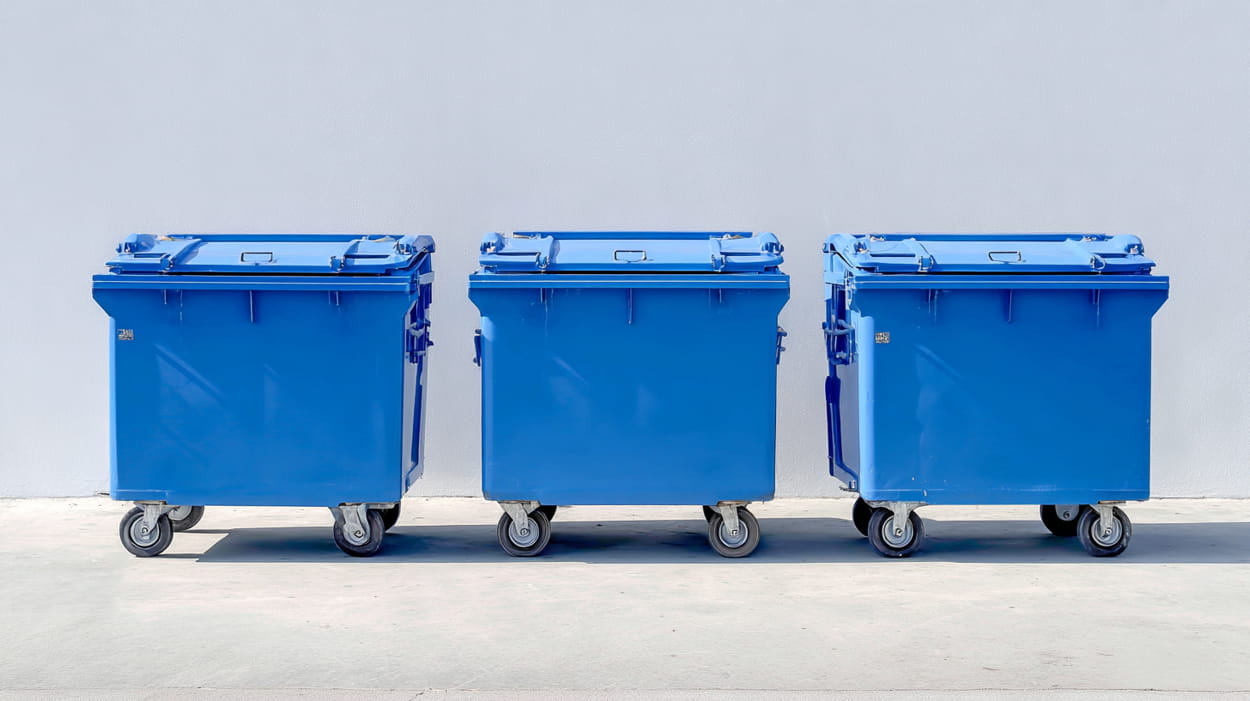How Contractors Can Use Multiple Dumpsters for Specialized Materials
On any construction site, waste management is a critical part of keeping projects on schedule, safe, and compliant with local regulations.

Contractors know that debris comes in many forms—wood, drywall, concrete, metal, roofing shingles, and more. Trying to toss all of these materials into a single container can lead to inefficiency, higher disposal costs, and even regulatory issues.
That’s why using multiple dumpsters for specialized materials is becoming a best practice in the construction industry. By separating waste streams, contractors can streamline cleanup, improve recycling rates, and keep job sites running smoothly.
The Problem with a One-Dumpster Approach
When all debris is thrown into a single container, several problems can arise:
- Increased disposal costs: Mixed waste often requires additional sorting at disposal facilities, which can drive up fees.
- Reduced recycling opportunities: Materials like metal and concrete are highly recyclable, but only if they’re kept separate.
- Safety hazards: Overfilled or improperly loaded dumpsters can create risks for workers.
- Regulatory concerns: Some municipalities require certain materials to be disposed of separately.
For contractors juggling timelines and budgets, these issues can create costly setbacks.
The Benefits of Multiple Dumpsters
1. Efficient Waste Sorting
Having dedicated dumpsters for wood, metal, concrete, and general debris makes it easier to separate materials from the start. This reduces the need for sorting later and ensures recyclable materials don’t end up in landfills.
2. Improved Recycling Rates
Concrete, asphalt, and metal are among the most recyclable construction materials. With dedicated dumpsters, contractors can maximize recycling, reduce environmental impact, and sometimes even lower disposal costs.
3. Safer Job Sites
Clear, designated dumpsters keep debris organized and contained. Workers know exactly where to dispose of different materials, reducing clutter and hazards on the site.
4. Regulatory Compliance
Using multiple dumpsters makes it easier to follow local disposal rules, ensuring that hazardous or restricted materials are handled properly.
Practical Applications for Contractors
- Concrete and Masonry Projects: A dedicated dumpster for concrete ensures heavy materials stay within safe weight limits.
- Roofing Jobs: Shingles and roofing debris can quickly fill a container; having a separate dumpster keeps the load manageable.
- Demolition Projects: Multiple dumpsters allow contractors to separate wood, drywall, and metal for easier recycling.
- Large-Scale Renovations: With different waste streams, having multiple dumpsters prevents overflow and keeps the site organized.
Why Work with Temporary Dumpster?
Managing multiple dumpsters requires a reliable partner who can deliver, swap, and pick up containers on schedule. Temporary Dumpster provides contractors with flexible rental options, a wide range of dumpster sizes, and the ability to support projects that require more than one container at a time.
Their construction dumpster rental services are designed specifically for job sites, offering the durability and capacity needed for heavy-duty debris. With transparent pricing and responsive customer service, contractors can focus on their projects instead of worrying about waste management.
For contractors, time is money—and efficient waste management is key to staying on track. By using multiple dumpsters for specialized materials, contractors can cut costs, improve recycling rates, and maintain safer, cleaner job sites.
With the support of trusted providers like Temporary Dumpster, managing multiple containers doesn’t have to be complicated. Instead, it becomes a strategic advantage that keeps projects running efficiently from start to finish.
%20(1).png)


.png)





.jpg)
%20(3).png)